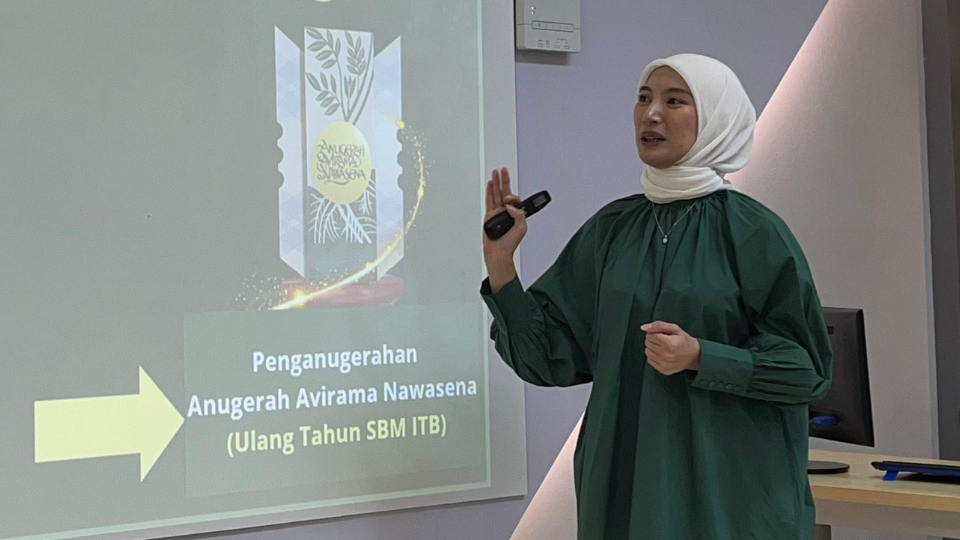The SBM ITB is again holding the Avirama Nawasena Award for sustainable innovators. The award was officially opened at the SBM ITB Building, Bandung, on Thursday (1/8) by the Chairperson, Atika Irawan, a lecturer from the SBM ITB finance expertise group.
“We aim to encourage low-carbon economic growth, natural resource efficiency, and social inclusion by providing recognition for innovators who contribute to sustainability,” said Atika when opening the event.
The Director of the Avirama Nawasema Award and lecturer in the entrepreneurship expertise group, Melia Famiola, emphasized that this award also creates cooperation between institutions.
“Avirama Nawasena provides a forum for collaboration to accelerate the transformation of society towards sustainability,” she concluded.
This year’s annual Avirama Nawasena Award raises seven innovation categories. Among them are product and service innovation, supply chain innovation, marketing innovation, and innovation that encourages social behavior. Green financial and investment innovations are new categories in response to the increasing trend of green financing in the investment market.
We assess the innovations based on their novelty and the scale of the impact they can generate. We hope the resulting innovation will have an impact in a way that has never existed before.
The Avirama Nawasena Award is not just for large corporations. Its platform welcomes and provides opportunities for small businesses, startups, foundations, social institutions, and even individuals. With categories like Small-Medium Business, Non-Profit Organization, and Individual, we ensure that everyone has a chance to contribute to sustainable innovation.
The registration period for this ESG award starts from August 1 – September 30, 2024, and the winners will be announced at the end of 2025. To evaluate the candidates for the award, SBM ITB deploys lecturers, professors, and sustainability experts from within and outside SBM ITB. SBM ITB also collaborates with BRIN, Social Investment Indonesia, and the Emil Salim Institute in its implementation.




